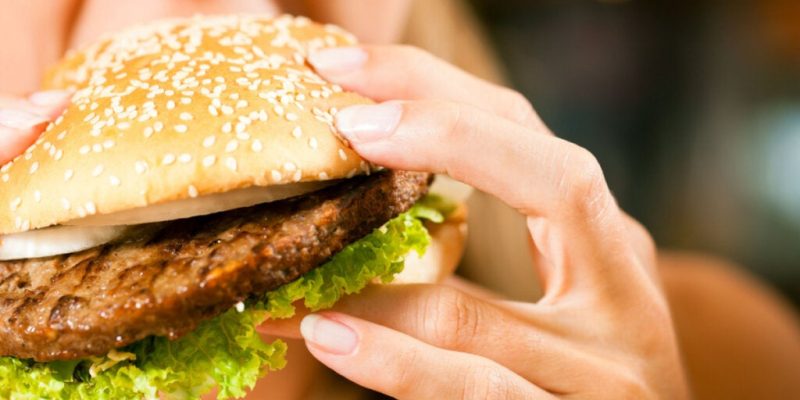Supranormal or supernormal stimuli are an interesting psychobiological phenomenon. They explain why there are specific circumstances in which our most basic instincts seem to fail. For example, with junk food: we love something that not only doesn’t nourish us but also has the potential to make us sick.
The phenomenon of supernormal stimuli and their consequences was detected for the first time in the 1940s, by Konrad Lorenz and Niko Tinbergen. These famous researchers were considered among the founding fathers of ethology, the study of animal behavior. Therefore, as would be expected, they captured the phenomenon of supernormal stimuli in animal species.
All organisms, including humans, come prepared to offer specific responses to certain stimuli. For example, fleeing from danger or feeding our children. However, in the presence of supernormal stimuli, our instincts take different courses and fail. But how does this happen and why?
“You have to look beyond the supernormal stimuli. They are, by definition, too much of a good thing and healthy boundaries need to be maintained…although there is nothing wrong with a little sugar once in a while.”
-Becky Burch-
Supernormal stimuli
Put in a technical way, supernormal stimuli are a modality of stimuli that exaggerate the qualities of other stimuli. The result is that their receptors emit a much stronger response than they would emit to a normal stimulus.
All organisms come equipped to respond instinctively to certain stimuli. If these normal stimuli are exchanged for those with more pronounced characteristics, the behavior becomes strange and the response is also much more intense than usual.
A simple example can be seen in the observation made by Tinbergen in herring gulls. In that species, the mothers have a red dot on their beaks. The instinct of the chicks leads them to peck at that point so that the mother regurgitates the food. Tinbergen tried to improve on nature and created a supernormal stimulus. He painted three white rings at the end of a large red knitting needle. This abstract dummy received 26 percent more pecks than a more realistic three-dimensional model of a gull’s head.
Another example occurs in certain birds that lay blue eggs speckled with gray. In one of his experiments, Tinbergen changed their eggs for much bigger plaster eggs with exaggerated markings. The mothers abandoned the real eggs and dedicated themselves to hatching the larger ones. But why does something that could possibly put a species at risk happen?
A verified phenomenon
We could claim that birds are stupid and allow themselves to be fooled by simple tricks. However, this isn’t the case and the phenomenon of supernormal stimuli occurs in all species, including humans. In fact, it’s in humans where the effect is most evident.
We’ve already mentioned our fascination with junk food, whose main virtue is to provide us with quick calories of little nutritional value. It attracts us to the point that we overlook the damage that it’s capable of causing us. One such example is cotton candy: an airy fluff with an intensely sweet flavor. It’s virtually equivalent to eating nothing, but we love it.
Another example of supernormal stimuli in humans is the exaggeration of certain sexual characteristics for the purpose of attracting other individuals of the same species. For instance, when an individual undergoes cosmetic surgery to have more voluminous breasts, a slimmer waist, or curvier hips. Although the result may be an implausible body, it is, in fact, more sexually attractive.

Supernormal stimuli in today’s world
Supernormal stimuli are present in various areas of the world today. They’re superlative representations of reality that lead us to engage in behaviors that are, if not absurd, at least unrealistic. For example, when someone experiences their sexuality through pornography or has extraordinary adventures in video games.
These augmented versions of reality exert a great power of attraction over us. They’re supernormal stimuli and cause the expected effect. The question that arises is whether these exaggerations won’t lead us to see ‘normal’ as ordinary and unattractive, even if it corresponds to reality. If so, we’ll be condemning ourselves to remain prisoners of the world of fiction, while real life passes us by.
The post Supernormal Stimuli: Why We Love Junk Food appeared first on Exploring your mind.



















Comments